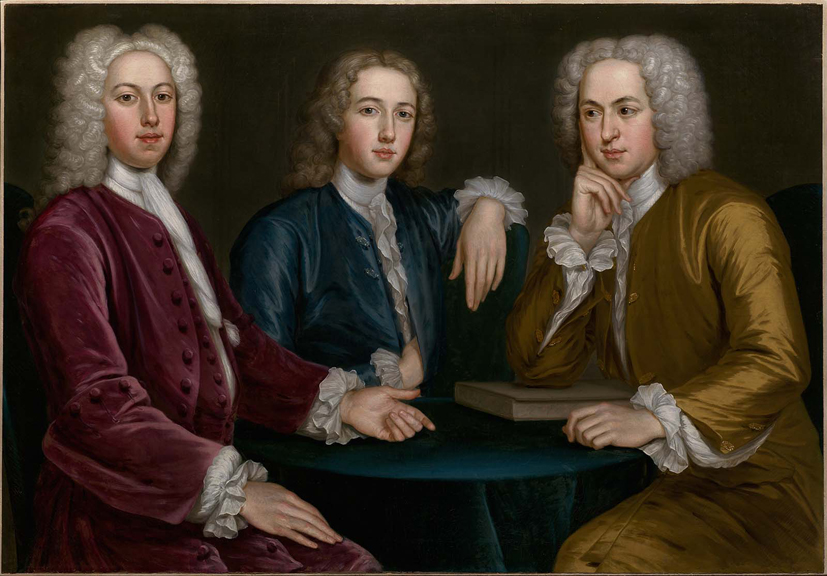
Andrew Oliver appears at the right in this copy of a painting at the Museum of Fine Arts Boston. Oliver was Lieutenant Governor of the Massachusetts leading up to the Revolution and was a loyalist. His country house was located at the corner of Washington and Park Streets, later owned by Walter Baker of Baker chocolate fame. The house was replaced by the Lucy Stone School in 1937.
Oliver “entertained the finest of the land, where gentlemen in powdered wigs and ladies in fine old silks used to dance the minuet.” The house was sold by Oliver’s estate to Col. Benjamin Hichborn, and in 1817 it went to his brother Samuel, “who entertained Gen. Lafayette, and Presidents Jefferson and Munroe” there.
Andrew Oliver (March 28, 1706 – March 3, 1774) was a merchant and public official in the Province of Massachusetts Bay. He was from a wealthy and politically powerful merchant family and is best known as the Massachusetts official responsible for implementing the provisions of the Stamp Act, for which he was burned in effigy. He never actually carried out those duties, and was, in 1771, commissioned as the province’s lieutenant governor. Popular indignation against him broke out again in 1773, when private letters between Oliver and Gov. Thomas Hutchinson were discovered, expressing criticism of the colonists and recommending coercive measures.
